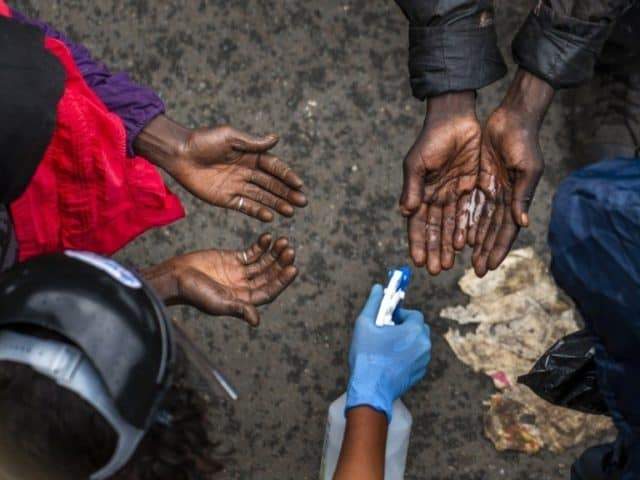China Says No to Writing Off Africa’s Belt and Road Debts

A Chinese commerce ministry official asserted on Thursday that writing off onerous African debts to Beijing under the Belt and Road Initiative (BRI) in response to the Chinese coronavirus pandemic would be “not simple nor effective.”
The article, appearing in the Communist Party newspaper the Global Times, appeared to be a response to calls this week for wealthy nations to suspend Africa’s debt payments until the end of the year, as the world faces a possible financial recession due to economic shutdowns caused by the Wuhan coronavirus.
Indebted African countries have been hit especially hard by the current economic slowdown “due to plummeting oil and commodity prices and weaker currencies, which ramp up external debt servicing costs,” according to a Reuters report on Monday. Some African nations may see as many as 20 million jobs lost as a result of the pandemic. On Wednesday, the Group of 20 (G20) economies, including China, the United States, India, and others, offered to suspend Africa’s debt payments until the end of 2020.
However, on Thursday, Ministry of Commerce official Song Wei – identified officially as “deputy director at the Ministry of Commerce’s Chinese Academy of International Trade and Economic Cooperation” – wrote that China should not write off African nations’ debt as international financial institutions have recommended, claiming such measures were “not effective.”
“The whole world is facing mounting pressure on pandemic prevention and consequent economic contraction as the novel [Wuhan] coronavirus ripples across the planet,” Song said. “China, as a creditor of some African countries, has been called upon to offer debt relief which actually is not simple nor effective.”
China is not just a creditor to “some” African countries; it is the single largest creditor to the African continent.
“What China could do to help is bring projects funded by loans back to life and realize sustainable profits, instead of measures as simple as offering write-offs. As always, China is open to talk with debtors on the basis of equality and mutual benefit,” the statement said. “Simply waiving debtors’ obligations as some countries or organizations have called for is not going to be effective as a solution. If any debtors encounter difficulties to pay on time, there may be tailored plans including rescheduling or China increasing funding to help related projects resume operation and return profits.”
African countries already deeply indebted to China through its Belt and Road Initiative (BRI) face serious economic trouble from the looming recession. Through the BRI, China establishes economically predatory infrastructure projects in developing nations to expand its influence. According to the Center for Global Development (CGD), Niger and Angola are among the African BRI countries likely to encounter future economic difficulties.
The International Monetary Fund (IMF) identified 16 sub-Saharan African countries as either being in debt distress or at high risk from the possible pandemic recession, the South China Morning Post (SCMP) reported on April 3.
African countries have called for $100 billion in bailouts and debt relief to help them cope with the negative effects of the economic shutdown caused by the Wuhan coronavirus pandemic, according to SCMP‘s report.
This week, international financial institutions like the World Bank and the International Monetary Fund (IMF) called for wealthy nations to place a payment moratorium on bilateral debt owed by the world’s poorest countries, among them many African nations.
Photo: AP Photo/Jerome Delay




